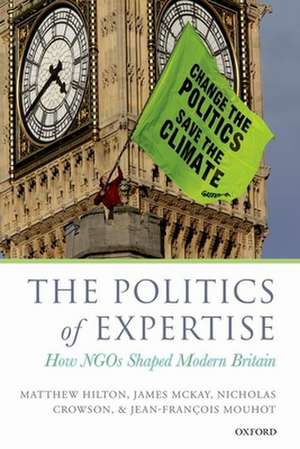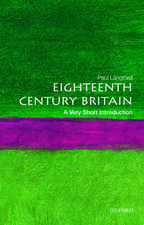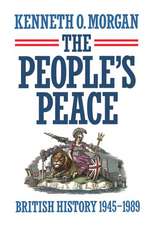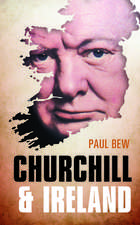The Politics of Expertise: How NGOs Shaped Modern Britain
Autor Matthew Hilton, James McKay, Nicholas Crowson, Jean-François Mouhoten Limba Engleză Hardback – 25 apr 2013
NGOs have contributed enormously to a professionalization and a privatization of politics, emerging as a new form of expert knowledge and political participation. They have been led by a new breed of non-party politician, working in collaboration and in competition with government. Skilful navigators of the modern technocratic state, they have brought expertise to expertise and, in so doing, have changed the nature of grassroots activism. As affluent citizens have felt marginalised by the increasingly complex nature of many policy solutions, they have made the rational calculation to support NGOs, the professionalism and resources of which make them better able to tackle complex problems. Yet in doing so, support rather than participation becomes the more appropriate way to describe the relationship of the public to NGOs. As voter turnout has declined, membership and trust in NGOs has increased. But NGOs are very different types of organisations from the classic democratic institutions of political parties and the labour movement. They maintain different and varied relationships with the publics they seek to represent. Attracting mass support has provided them with the resources and the legitimacy to speak to power on a bewildering range of issues, yet perhaps the ultimate victors in this new form of politics are the NGOs themselves.
Preț: 458.51 lei
Preț vechi: 631.09 lei
-27% Nou
87.73€ • 91.60$ • 72.61£
Carte tipărită la comandă
Livrare economică 24-31 martie
Specificații
ISBN-10: 0199691878
Pagini: 336
Ilustrații: 5 black and white images, numerous tables and figures
Dimensiuni: 164 x 240 x 24 mm
Greutate: 0.66 kg
Editura: OUP OXFORD
Colecția OUP Oxford
Locul publicării:Oxford, United Kingdom
Descriere
The Politics of Expertise offers a challenging new interpretation of politics in contemporary Britain, through an examination of non-governmental organisations. Using specific case studies of the homelessness, environment, and international aid and development sectors, it demonstrates how politics and political activism has changed over the last half century.
NGOs have contributed enormously to a professionalization and a privatization of politics, emerging as a new form of expert knowledge and political participation. They have been led by a new breed of non-party politician, working in collaboration and in competition with government. Skilful navigators of the modern technocratic state, they have brought expertise to expertise and, in so doing, have changed the nature of grassroots activism. As affluent citizens have felt marginalised by the increasingly complex nature of many policy solutions, they have made the rational calculation to support NGOs, the professionalism and resources of which make them better able to tackle complex problems. Yet in doing so, support rather than participation becomes the more appropriate way to describe the relationship of the public to NGOs. As voter turnout has declined, membership and trust in NGOs has increased. But NGOs are very different types of organisations from the classic democratic institutions of political parties and the labour movement. They maintain different and varied relationships with the publics they seek to represent. Attracting mass support has provided them with the resources and the legitimacy to speak to power on a bewildering range of issues, yet perhaps the ultimate victors in this new form of politics are the NGOs themselves.
Recenzii
This is a powerful interpretation with much to recommend it, not just because it fits with a great deal of the evidence, but because it enables the authors to pinpoint with some precision what was distinct about the post-war period, whilst tracing continuities with earlier forms of non-governmental action.
This is probably the most important book on postwar British political history ... The Politics of Expertise demonstrates that that the NGO sector does not, never has and probably never will operate in the way government ministers want it to.










